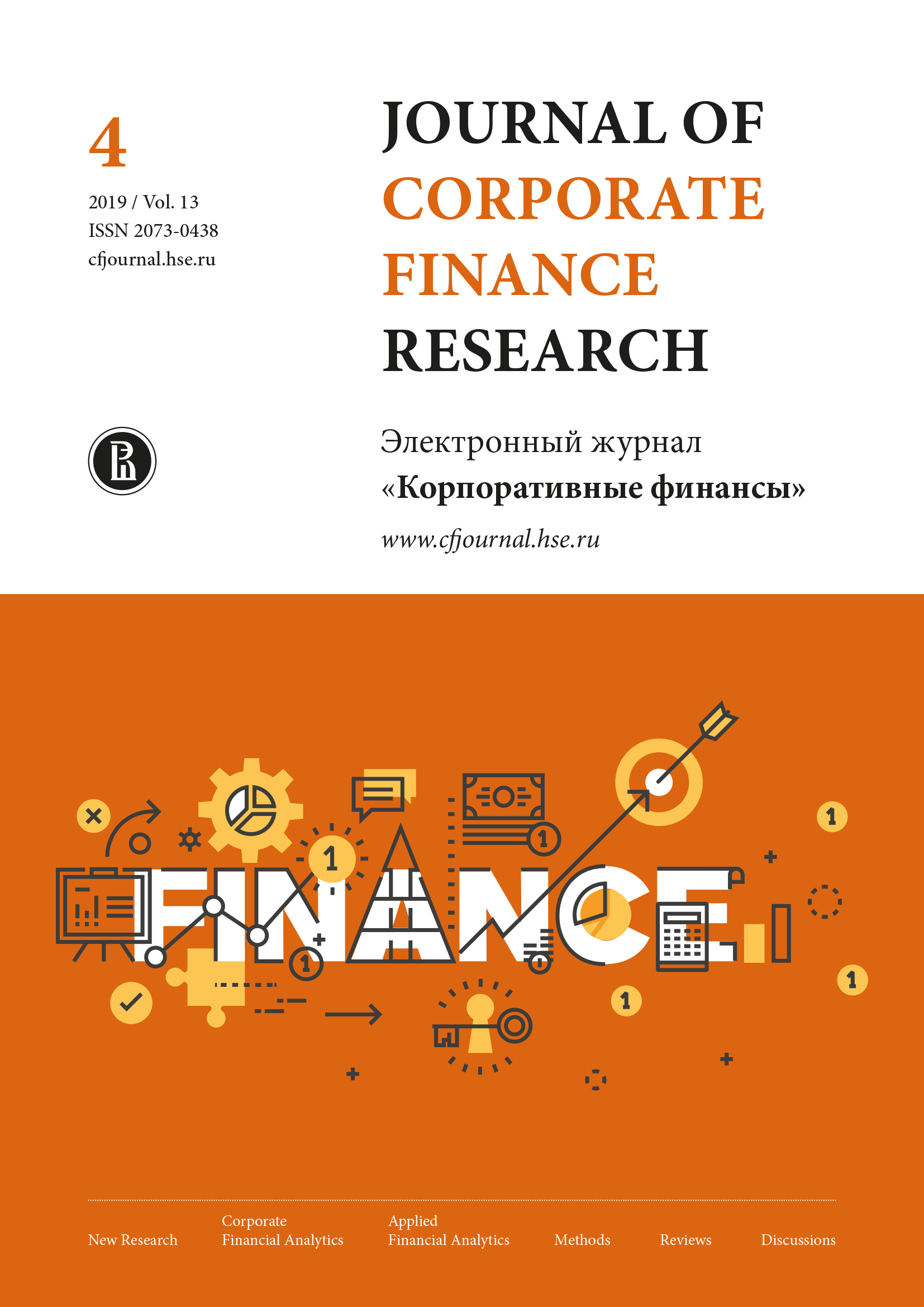The Impact of Economic Policy Uncertainty on Capital Structure: Evidence from Russia
Abstract
This paper is a study of the influence of economic policy uncertainty on the capital structure of companies operating in the Russian market. The sample size is particularly notable (over 16,000 companies and 230,000 observations are included) insofar as previous studies have invariably used smaller selections due to the complexities of data processing. Several hypotheses are proposed and treated which concern the interrelations between company debt policies and the status of individual, sectoral, or industry relevant commercial activity, where the constant threat of economic uncertainty due to political or other external machinations affects the market.
This research paper examines the following capital structure determinants: profitability, asset structure, company size, tax shield, non-debt tax shield, growth opportunity, and risk. The following methods are applied to test a series of nine hypotheses proposed as the most salient indicators of the present state of academic consensus: the Pool model (Pool), the fixed effect model (FE), and the random effect model (RE). In this context, the influence of economic uncertainty on the status of different debt types in 16,882 Russian companies between 2000 and 2017 was studied using the economic policy uncertainty index calculated in 2012.
The results serve to confirm many of the extant hypotheses in the academic literature in the area of capital structural evaluation. For example, it is immediately apparent that the influence of uncertainty is of less significance for large companies as regards all types of debt (joint, short-term and long-term), due to their greater stability and lower risks for creditors. Among other conclusions, it is confirmed that as long as serious government participation is characteristic of the Russian banking system, the efficacy of the debt financing system is not equal for all sectors, and those sectors which are of strategic importance for the state are particularly resilient in troubled economic periods. However, interestingly, in the case of a short-term debt leverage such influence does not materialise.
From a theoretical point of view this paper will be useful for researchers studying the fluctuating market conditions of developing or transitional markets (the large sample size will make this study particularly attractive for further evaluation at all levels of academic analysis). An understanding of the multivariate interrelations described in this paper may also be useful to company managers and investors who will gain insight into the consequences of fluctuations in levels of economic uncertainty for different types of companies.

